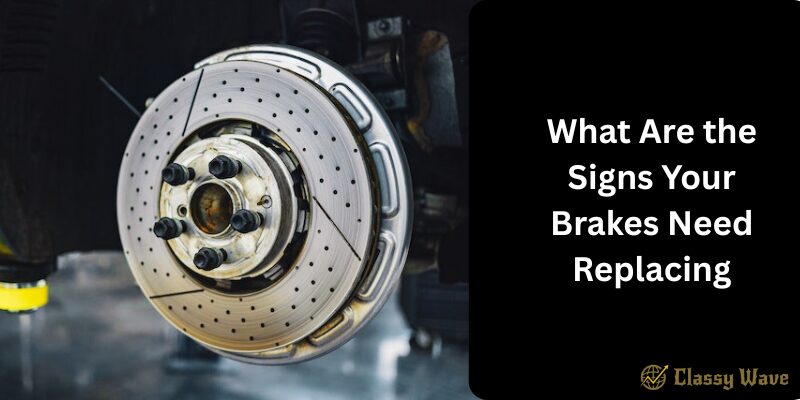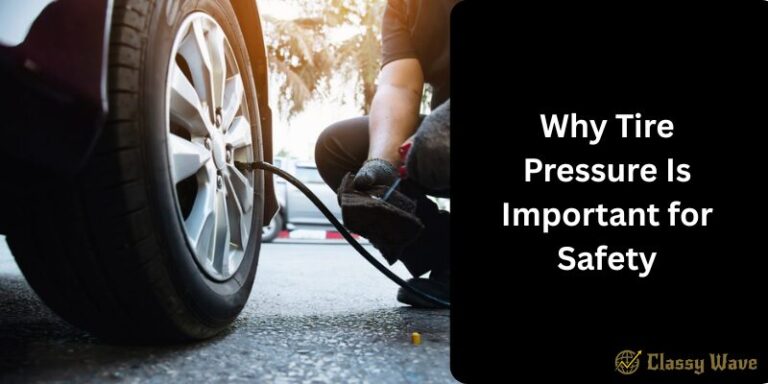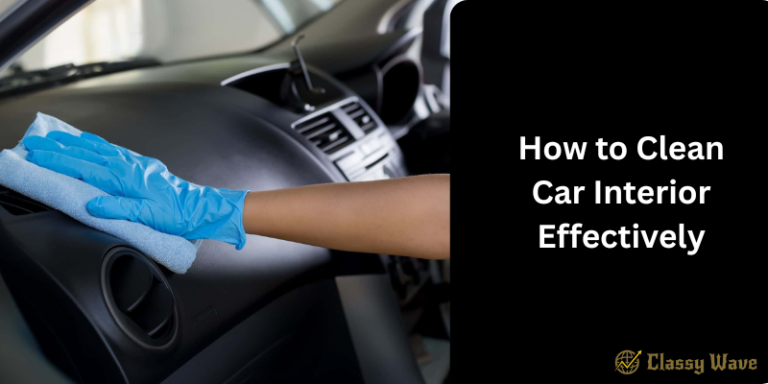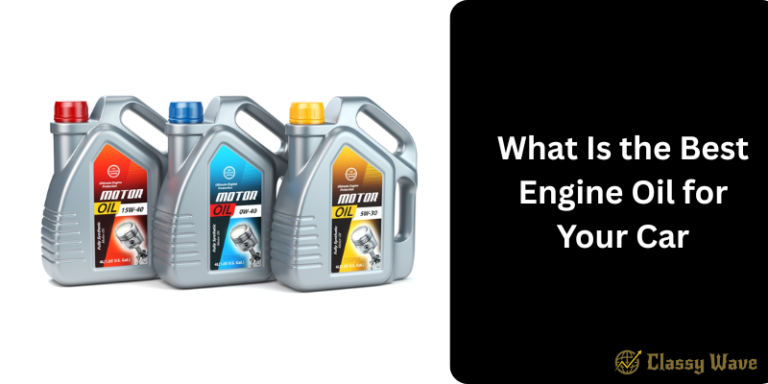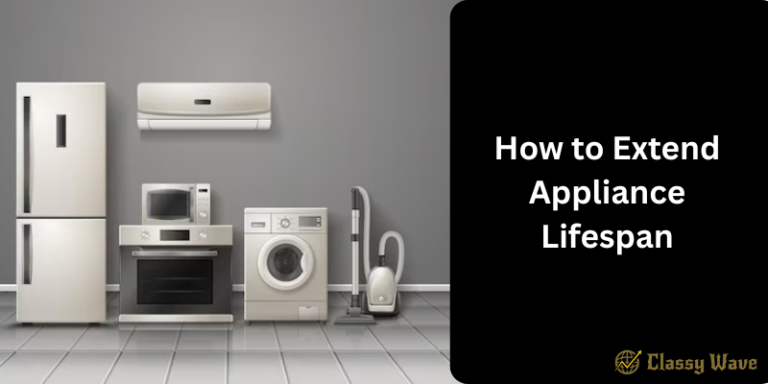What Are the Signs Your Brakes Need Replacing | Classy Wave
Your car’s brakes are one of its most crucial safety features. They allow you to stop quickly, control your speed, and stay safe on the road. But like any mechanical part, brakes wear out over time—and ignoring the warning signs can put you and others at risk. Knowing when to replace your brakes can save you from costly repairs and dangerous situations.
In this article, we’ll explore the most common signs your brakes need replacing, what causes brake wear, and how to keep your braking system in top shape.
Why Brake Maintenance Matters
Your brakes don’t just slow your car—they keep you safe in emergencies. Regular brake maintenance ensures smooth performance, prevents damage to other parts (like rotors), and helps avoid accidents caused by brake failure.
A well-maintained braking system can also improve your vehicle’s fuel efficiency and handling, making your drives safer and smoother.
1. Squeaking or Squealing Sounds
If you hear a high-pitched squeaking or squealing noise when pressing the brake pedal, it’s a clear warning sign. Most modern brake pads have a built-in indicator that makes this sound to alert you they’re wearing thin.
Ignoring this noise can lead to metal-on-metal friction, damaging your rotors and increasing repair costs.
2. Grinding Noise When Braking
A grinding sound usually means your brake pads are completely worn out, and the metal backing is now rubbing directly against the rotors. This can cause serious damage and drastically reduce braking efficiency.
If you hear grinding, stop driving immediately and have your brakes inspected by a mechanic.
3. Vibration or Pulsation When Braking
Do you feel vibrations or a pulsing sensation through the brake pedal or steering wheel? This often indicates warped rotors or uneven wear on the brake pads.
Warped rotors can occur from excessive heat, heavy braking, or prolonged use without maintenance. The sooner you fix it, the better your braking performance will be.
4. Longer Stopping Distance
If your car takes longer than usual to come to a complete stop, your brakes may be losing their effectiveness. Worn-out pads or low brake fluid levels are often the culprits.
This is not something to ignore—brake fade can lead to dangerous situations, especially in emergencies or wet conditions.
5. Soft or Spongy Brake Pedal
When your brake pedal feels soft, spongy, or sinks to the floor easily, it’s a sign of a potential brake fluid leak or air trapped in the brake lines.
This reduces the hydraulic pressure needed to stop your vehicle effectively. If this happens, have your braking system checked immediately to prevent complete brake failure.
6. Brake Warning Light on Dashboard
Most modern vehicles are equipped with a brake warning light. If this light comes on and stays illuminated, it’s your car’s way of telling you there’s a problem.
It could indicate low brake fluid, worn pads, or an issue with the anti-lock braking system (ABS). Don’t ignore dashboard warnings—they’re there for your safety.
7. Car Pulling to One Side When Braking
If your vehicle pulls to one side when you apply the brakes, it could be due to uneven brake pad wear, a stuck caliper, or a problem with your brake fluid distribution.
This imbalance can cause uneven tire wear and affect your control of the car, especially at high speeds.
8. Burning Smell While Driving or Braking
A sharp, burning smell after heavy braking could mean your brakes are overheating. Overheated brakes can cause brake fade, reducing their stopping power.
If you notice this smell, pull over safely, let your brakes cool down, and avoid aggressive driving until they’re checked.
9. Visible Wear on Brake Pads
You can often inspect your brake pads visually through the wheel spokes. If they look thinner than 1/4 inch, it’s time to replace them.
Also, check for uneven wear or cracks on the pads—they’re indicators of poor alignment or caliper issues.
10. Leaking Brake Fluid
Brake fluid is essential for your braking system to function properly. If you notice fluid pooling under your car near the wheels or brake pedal, it could be a brake fluid leak.
Without enough fluid, the hydraulic pressure won’t build, and your brakes will fail to respond properly.
What Causes Brakes to Wear Out?
Several factors contribute to brake wear, including:
- Frequent stop-and-go driving
- Heavy loads or towing
- Aggressive driving and sudden braking
- Poor-quality brake pads
- Lack of regular maintenance
Regular inspections and mindful driving can extend the lifespan of your brake components significantly.
How Often Should You Replace Your Brakes?
On average, brake pads last between 30,000 and 70,000 miles, depending on driving habits and conditions. However, it’s best to have your brakes inspected every 6 months or during routine servicing.
If you frequently drive in traffic, hilly areas, or carry heavy loads, you might need replacements more often.
Tips to Extend the Life of Your Brakes
- Avoid sudden stops—brake gradually.
- Keep a safe following distance to reduce the need for harsh braking.
- Get regular brake inspections.
- Use high-quality brake pads and fluids.
- Check your brake fluid level regularly.
These small habits can make a big difference in how long your brakes last.
Conclusion
Your car’s braking system is your first line of defense on the road. Recognizing the early signs that your brakes need replacing can prevent costly repairs and keep you safe behind the wheel. Whether it’s squeaking noises, vibration, or a warning light, never ignore the signs. Stay proactive, schedule regular inspections, and replace your brake pads before it’s too late—because your safety depends on it.

